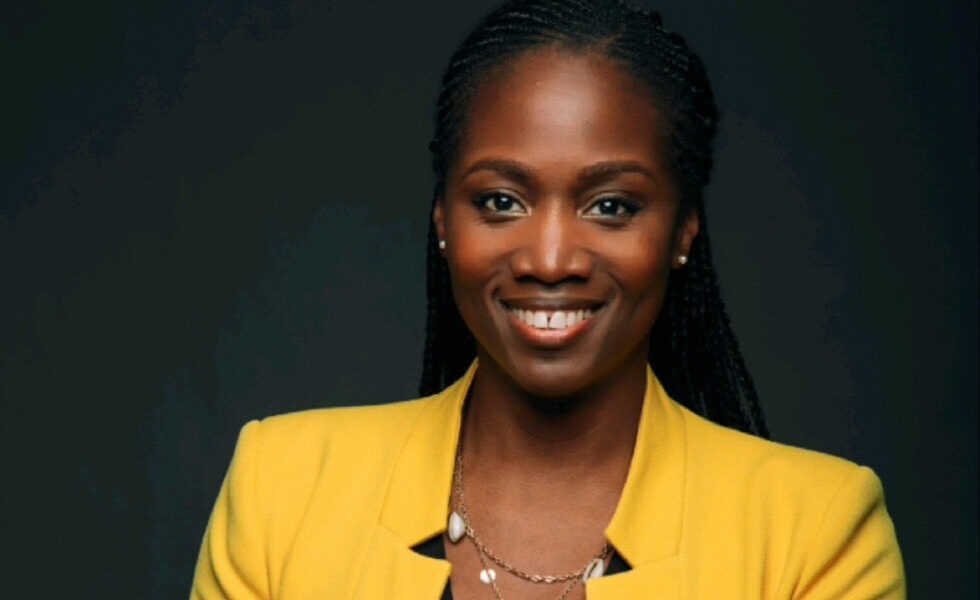Candace Nkoth Bissek is an award winning digital economy expert and women empowerment advocate from Cameroon. A Forbes 30 under 30, she is the founder of Innova Consulting, a Switzerland-based consultancy firm that supports organizations to leverage entrepreneurship, innovation and the digital economy as a tool for development in Sub-Saharan Africa.
Candace was one of the facilitators at the ‘Equipping African Women Entrepreneurs to make it in Africa’’ event. Organized by the African Union Development Agency-NEPAD on the sidelines of the Africa Industrialization Week in Niamey Niger, the two-day event aimed to empower women processors from different parts of the continent with business skills to accelerate Africa’s industrialization and tap into the opportunities the Africa Continental Free Trade Agreement (AfCFTA) presents.
We caught up with her on Tuesday, November 22, before she took the women through a session on how they can harness digital tools and e-commerce to expand their businesses, attract more visibility and ultimately sell more.
What role do capacity-building events such as this play in preparing women entrepreneurs for the AfCTA and accelerating Africa’s industrialization?
This event is extraordinary because in addition to equipping these women with the tools they will need to thrive as entrepreneurs for example branding, packaging and other technical assistance, it also allows them to see the benefit of Pan Africanism, trading together and building relationships with each other because we have women from different countries that are here today. We tend to focus on our little businesses localized at home but this place allows them to get perspective to see that there are other inspiring women doing good across the continent and enables them to build those relationships on the ground. Ultimately the AfCFTA is just a cherry on the cake that is consolidating alliances and connections that have already been built on the ground during such initiatives. It’s very encouraging.
With the AfCFTA, why is it important for women SME owners now more than ever to adopt digital technology and skills for their businesses?
I believe that e-commerce helps people to sell beyond their localization and geography, so having these digital skills will allow them to take advantage of the opportunities offered by the AfCTA and be able to possibly make alliances and trade agreements with other businesses across the continent, so it’s complimentary.
What are some of the barriers you have noticed women face when it comes to digital transformation and how can they be eliminated?
They face a lot of challenges like technical access, cost of bandwidth and the extent to which people have digital skills; for example even if they have internet access, are they able to use the internet as a tool to generate income beyond Whatsapp and Facebook? Another is having limiting beliefs, thinking that selling on the internet is too complicated, and only for the young, the men or White people which prevents them from taking advantage of these tools. Therefore, they need access to proper support for them to overcome those limiting beliefs and different barriers. Even if they could connect to the internet and acquire the skills, they need to be supported to set up their businesses in a way that allows them to sell online.
What opportunities do you think lies for women SME owners with the AfCFTA?
I think the more we learn to live, work and trade together, the better for the continent. The AfCFTA allows us to realize that we have value to bring among ourselves, it allows us to challenge each other and become a stronger continent because we do more things together.
What message do you have for the readers?
I think it’s important that policymakers and funding agencies keep organizing these Pan-African events and supporting initiatives that allow African women to sit, work and learn together. It will help promote even further the efforts they are doing even on policy-making level because on the ground people are seeing already the benefits of joining forces.
Organized by the African Union, the 2022 Africa Industrialization Week is currently underway in Niamey Niger where the African Union Summit on Industrialization and Economic Diversification will take place under the theme “Industrialising Africa: Renewed commitment towards an Inclusive and Sustainable Industrialization and Economic Diversification.
Held from November 20-25th, the event is being commemorated with a host of week-long activities, to reflect and accelerate actions towards Africa’s structural transformation, as an enabler to meet the objectives of Agenda 2063, and SDGs, 2030.

